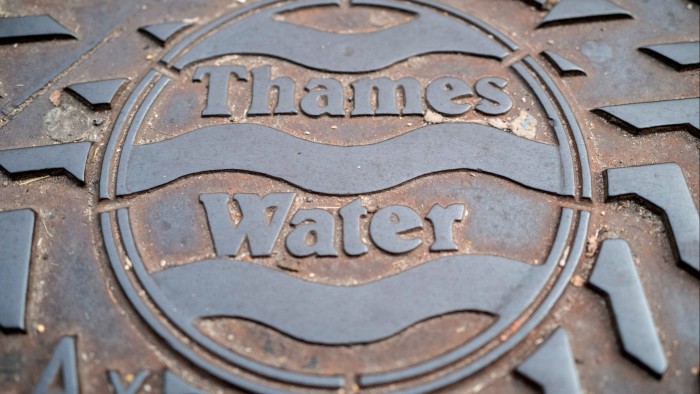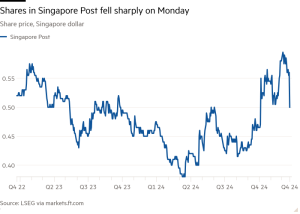Thames Water boss says break-up would be a distraction

Unlock the Editor’s Digest for free
Roula Khalaf, Editor of the FT, selects her favourite stories in this weekly newsletter.
The boss of Thames Water pushed back against the immediate prospect of a break-up of the UK’s largest water utility on Tuesday, saying the group was focused on raising debt and equity to help it avert a cash crunch this year.
Speaking as the utility reported first-half results, chief executive Chris Weston said he was confident the company would secure court approval in January for an emergency loan of up to £3bn from creditors. He added that he was “comfortable” with the number of equity bids received so far for the utility, in a process that will continue into the new year.
Despite growing calls from equity investors and academics for a break-up of the business, Weston said: “My concern about a break-up would be that it would distract management from sorting out the fundamentals of the business.”
The pushback from Weston comes days after a deadline to make preliminary offers for the struggling utility, with one bidder saying it would break up the group, which serves 16mn customers across London and surrounding areas.
Thames Water is struggling under a £19bn debt mountain, and risks being temporarily renationalised under the government’s special administration regime.
Covalis Capital, an infrastructure fund, has submitted an indicative bid for the company that would see France’s Suez flown in to help manage a break-up of Thames Water before listing it on the stock market. Covalis has proposed selling off some of the company’s assets, including potentially entire regions.
Castle Water, which already runs billing services for Thames Water’s business customers, has also made an indicative bid. Others are expected to submit offers once industry regulator Ofwat has decided later this month on the extent to which the company will be allowed to raise customer bills.
On Tuesday, Thames Water said it would run out of cash in March if it fails to secure court approval for the £3bn lifeline. The offer — agreed by more than three-quarters of its top-ranking creditors — comes with an interest rate of 9.75 per cent as well as fees, and has sparked opposition from some other creditors as well as environmental campaign groups. High Court hearings to approve the loan will take place next week and in January.
The company on Tuesday reported a first-half loss of £189.7mn, due to exceptional items including a £104mn provision for potential fines over failings at sewage treatment works. Pollution incidents increased by 40 per cent year on year in the period, though leakage improved.
It has also spent around £50mn linked to “restructuring and transformation” and engaging with creditors.
Thames Water has said that it needs to raise bills to help fund an overhaul of its ageing infrastructure. The company has asked Ofwat for a 52 per cent rise in bills by 2030. The slow-burning crisis at the group accelerated in March when its existing shareholders, made up of pension funds and sovereign wealth funds, declared the business “uninvestable” and balked at injecting new money.
Experts including Dieter Helm, professor of economic policy at the University of Oxford, are calling for the utility to be brought under the government’s special administration regime, and a restructuring and break-up of the business, rather than on negotiating a deal with creditors.
Special administration could allow the company to stop paying interest on the debt, freeing up cash to be spent on maintenance and improvements and enabling time for the business financial liabilities to be restructured and new equity owners found, experts say.
This would avoid a potentially distressed sale in the next few months. There should be no need for the government to take the debt on its balance sheet as it would be frozen.
“There would be no obligation for the government to take on the company’s debt if the company is put into SAR,” said Stuart Rowson, partner at law firm Paul Hastings. “However, that’s not to say there couldn’t be an impact on government finances if, for example, government support was needed to support and restructure the business”.
Labour is reluctant to take the company into special administration and has said it favours a private-sector solution.
#Thames #Water #boss #breakup #distraction





